Japan Opens Market to More U.S. Ethanol
Japan’s Ministry of Economy, Trade and Industry (METI) released its final proposed rule for partial amendment of the Act on Sophisticated Methods of Energy Supply Structures on March 30, 2023 – in place through 2028 – that allows the country to further contribute to its climate targets through consumption of lower carbon ethanol and, for the first time, will allow U.S. ethanol to successfully access 100 percent of the Japanese biofuel market.
The Act, which is reviewed every five years, featured timely and scientific updates regarding the life cycle assessment of U.S. corn-based ethanol.
Japanese regulators revised the U.S. corn ethanol carbon intensity score that allows U.S. ethanol to fully access the entire bioethanol market – up from 66 percent access in 2021 based on continued improvement in reduction of carbon emission by the U.S. ethanol industry. The target volume for Japanese bioethanol consumption remains at 217 million gallons per year at an ethanol blend level of 1.9 percent utilized in the form of ethyl tert-butyl ether (ETBE).
Gevo, SIRE to Capture Higher Carbon Values
Southwest Iowa Renewable Energy and Gevo Inc. announced a joint agreement in March to track and verify carbon intensity scores toward marketing ethanol-based jet fuel through California's low carbon fuel standard. The companies received a $30 million USDA Climate-Smart Partnership grant to look at ways to create incentives for low carbon corn. They are awaiting final approval by USDA on their project.
Kevin Hodges, Gevo grower program lead, said that while both companies are part of the USDA grant, they also see market opportunities that can increase revenue streams for corn farmers in SIRE's local area of southwest Iowa and southeast Nebraska.
"This JDA is an additional business opportunity that both companies realized agricultural benefits can be combined with biofuels to reduce carbon-intensity. This opportunity aligns with the administration’s current thinking with the passing of the Inflation Reduction Act," which offers incentives for sustainable aviation fuel, Hodges said.
The 2023 growing season will be the initial launch with scaled acres likely in 2024, according to Hodges. Growers who deliver corn to SIRE, a 130-million-gallon-per-year ethanol plant located in Council Bluffs, can use Gevo’s newly created Verity Tracking platform within its Verity Carbon Solutions business.
ACE Reaction to EPA’s Proposed Vehicle Tailpipe/GHG Standards
On April 12, 2023 the U.S. Environmental Protection Agency (EPA) proposed its new set of aspirational greenhouse gas (GHG) emission standards for Model Years 2027-2032 light- and medium-duty vehicles biased toward an uncertain electric vehicle future over other readily available consumer-friendly CO2 reducing technologies like low carbon, high octane biofuels which are reducing GHGs and saving consumers money at the pump today.
American Coalition for Ethanol (ACE) CEO Brian Jennings said that while ACE shares EPA’s desire to decarbonize the U.S. passenger fleet, the organization believes there is a better way than arbitrarily regulating a solution with significant unknowns. “As EPA Agriculture Advisor Rod Snyder told ACE members just last month, there is no question we will be using liquid transportation fuels for a long time to come, our lifetimes. Appreciating this truth, ACE members are dedicated to producing domestic biofuels with net-negative carbon scores – something that EVs will never achieve,” Jennings said.
“Today’s proposal would stifle innovation and slow near-term climate reductions in exchange for a future of supply chain uncertainty and exacerbating environmental damage and human rights impacts from unsustainable mining of critical minerals across the globe,” Jennings added. “Rather than put all our eggs in the electric vehicle basket, a smarter and more achievable approach would be through a technology-neutral Clean Fuel Standard that ensures fair and accurate accounting and crediting of GHG reductions from climate-smart agriculture practices and unleashes homegrown fuel sources.”
ACE Submits Feedback to EPA on E15 Rule for Midwest States in 2024, Urges Action for 2023
ACE submitted feedback April 20, 2023 to the Environmental Protection Agency’s proposed rule in response to the requests from eight Midwest governors to remove the 1-psi volatility waiver for gasoline-ethanol blends containing 10 percent ethanol in their states. EPA is proposing to remove the 1-psi waiver in Illinois, Iowa, Minnesota, Missouri, Nebraska, Ohio, South Dakota, and Wisconsin starting in 2024 – a delay from the original request for implementation in 2023.
While ACE appreciates EPA finally taking action on the governors’ petitions, CEO Brian Jennings explained if EPA chooses not to implement the rule in 2023, the Agency’s “legally questionable delay to 2024 will force millions of people in conventional gasoline areas of the U.S. to pay much more at the pump during this year’s summer driving season – on the heels of last year’s record-high gasoline prices and continued inflationary pressure on American families.”
With the sense of urgency about the fast-approaching June 1, 2023 summer driving season and market access for E15 in all areas of the country, including conventional gasoline areas, Jennings urged the Agency to take emergency action in ACE’s comments.
Jennings concluded by reiterating if there are real concerns related to the gasoline supply chain relative to a 2023 implementation date, they are problems of EPA’s own making. “…if the Agency had responded to the eight petitioning states within the statutorily required 90 days there would be no need to fret about refiner concerns with timing.”
ACE’s full comments can be accessed at ethanol.org/news/.




